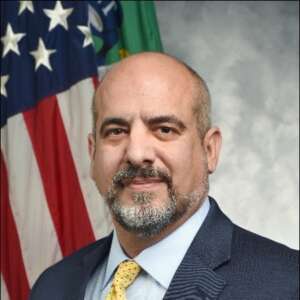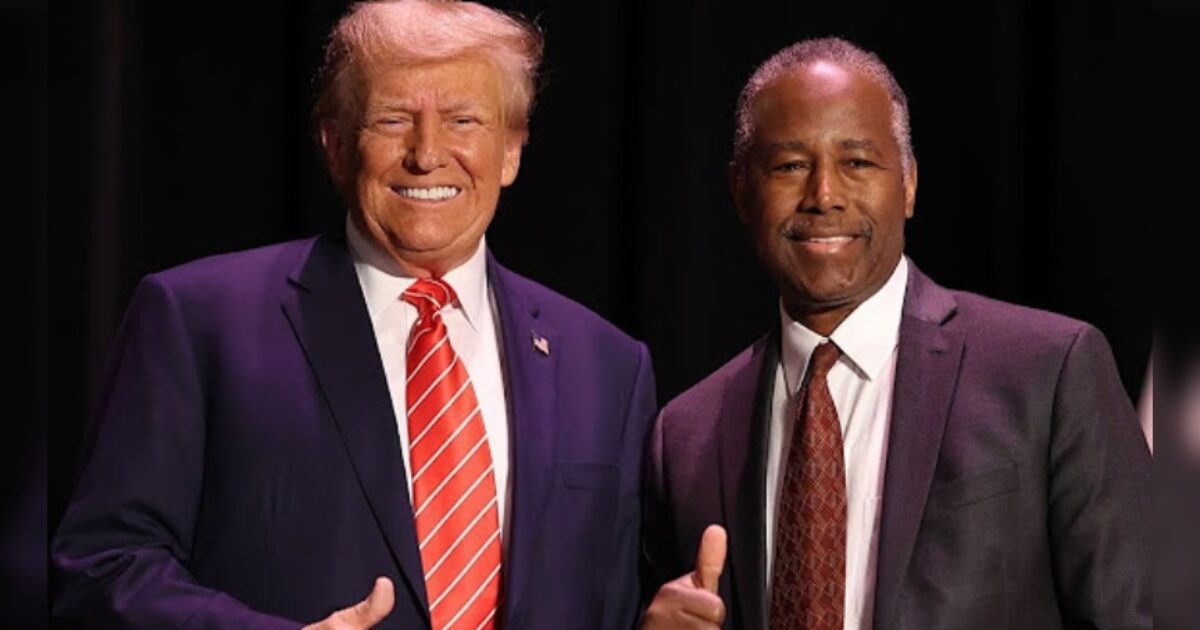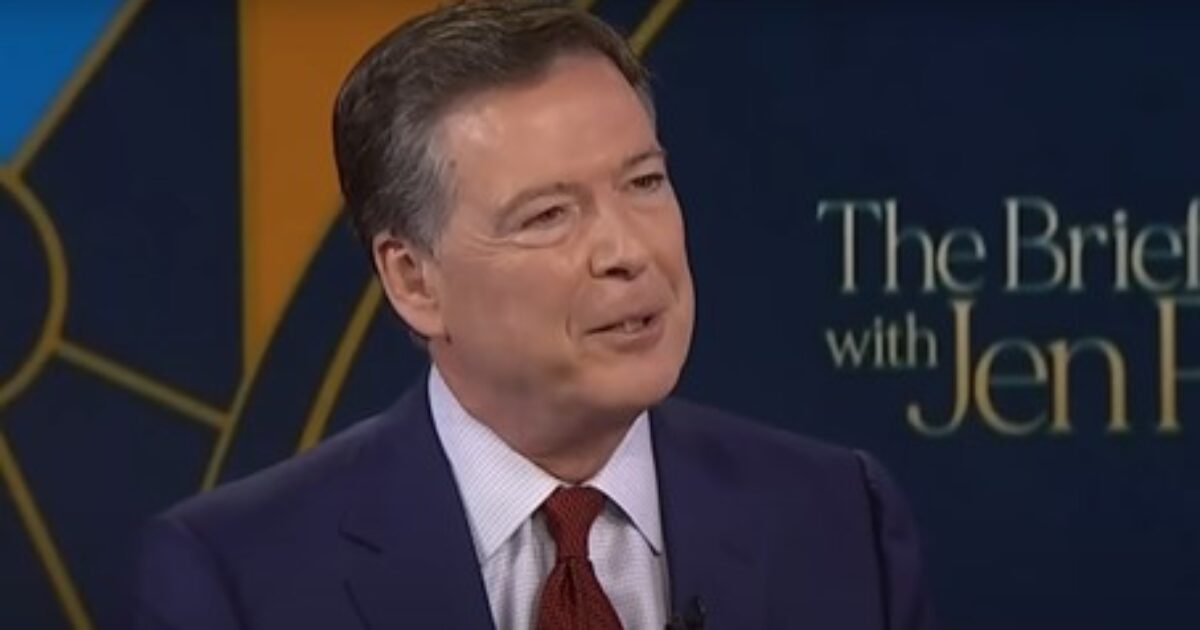Politics
Treasury took the ‘meal deal’ approach to IT shared services

When it comes to IT shared services, Tony Arcadi likes to use a familiar analogy. The former Treasury Department chief information officer, who recently retired from federal service after 28 years, likes to compare centralized IT services to a value meal at a fast food restaurant where you get your sandwich, fries and drink for one price.
“I’ll have a number one or I’ll have a number two or I’ll have a number three. Let’s take the guesswork out of it. Let’s reduce the time to market so that we’re able to get out there with the information technology. Our goal was to reduce time to market, become more cost efficient and make sure all the security is integrated in the meal deal, if you will, so you don’t add it in later. It’s baked in,” Arcadi said during an “exit” interview on Ask the CIO. “I think the major driver for me was cost efficiency. Having a cost effective platform, reducing our attack surface so that we’ve got less border to protect and deploying common parts that can be assembled to deliver both commodity IT and mission specific IT.”
Tony Arcadi recently left federal service after 28 years, including the last four as the Treasury Department’s chief information officer.
The T-Cloud program, which Treasury awarded to SAIC in June 2023 under a seven-year, $1.3 billion deal, is a major driver of that shared services effort.
Through the contract, SAIC acts as a cloud broker and integrator that gives Treasury and its bureaus access to the major cloud providers like AWS, IBM, Microsoft, Google and Oracle.
Arcadi said T-Cloud was one of his team’s major accomplishments during his tenure.
“It’s fully integrated with the enterprise network. It’s fully integrated with enterprise identity system and is fully integrated with the enterprise security operations center (SOC), so T-Cloud allows rapid, cost effective, resilience and secure cloud deployments,” he said. “What we wanted to do there was allow the bureaus, the mind space and the organizational dedication to their mission-specific IT, whether it’s the collection of taxes, minting of coins, printing of money, payment of bills or whatever their very mission specific is, and not have that bureau’s mind space occupied by questions like how do I get to a cloud provider? How do I manage my network? Where do I get my phone service from? Who’s my email provider? These are not really substantive mission differentiators. We tried to handle those in a centralized, consolidated way, while giving that access to the bureaus to run their mission specific IT.”
Arcadi took a similar approach to create an enterprise SOC for those agency bureaus that needed help with cybersecurity.
The Treasury shared services operations center now offers enterprise-level protection as a shared service deployment for the smaller bureaus. Arcadi said these bureaus now have a 24/7 SOC operation.
“A lot of smaller bureaus at Treasury were able to benefit from the T-SOC shared service, and we had a number of bureaus migrated over when I left, and we’re continuing that migration,” he said.
Getting a little ‘New York’ on you
Deploying shared IT services is never a smooth process. Arcadi said there was a mix of reactions over the last several years that he received with some bureaus more excited than others.
“There’s two ways to deploy shared services, and I’m going to get a little ‘New York’ on you. I can come up to you and put a bag over your head, shove you in the back of the van and drive away, or I can pull up on a limo or a black car or taxi and you can sit in a back seat and we can have a conversation. You can see out the windows. So the analogy that we’re trying to bring in there is the ability to see out the windows. What we found in deploying shared services, both at Justice and here at Treasury, is we can really gain the confidence of the IT practitioners by giving them full visibility,” he said with a laugh. “They don’t have to be driving the car. They have to be able to see out the windows. They have to be able to have a conversation with the driver about where the driver is going. So going back to the analogy, with a bag over your head, where are you going? You can’t see. We’re not having a conversation. You’re uncomfortable, to say the least. This is not a pleasant experience. Or I pick you up and you sit in the back seat. We have a nice conversation. You can see where we are going and we talk about it. We arrive at the same place, but they are remarkably different experiences.”
Arcadi added his team set up governance structures for the bureaus to participate in and that helped convince them to eventually give up some of the control.
He said one of the best ways he convinced bureau CIOs to give up some control was to help them understand the benefits of the shared services, especially those capabilities the bureau didn’t have and couldn’t afford anytime soon.
Real cost savings
“We built our shared services to afford some flexibility, while at the same time ensuring they have all the appropriate cybersecurity accouterments,” he said. “We deployed shared services into every bureau of the department. Every bureau is a user of the network; every bureau is a user of the SOC; every bureau is a user of the identity management tools. The scale of that utilization varies by bureau, and I think that continuing that commodity IT consolidation under the current administration is going to be critical to their efforts to further introduce cost efficiency into government.”
The shared services approach led to real savings for the department. Arcadi said the move to an enterprise network, for example, saw a 46% cost reduction in per unit of service, which is basically a unit of throughput just from aggregating and consolidating the agency’s needs.
“We saw reduction in time to market, measured in months to years for the cloud. They were between 6 and 18 months off of the timeline to bring a product to market or put it into production,” he said. “We have the cost savings. We have the reduction in time to market, which means that we’re driving mission value more quickly. Then we’ve got security, which is just unachievable unless we band together.”
The post Treasury took the ‘meal deal’ approach to IT shared services first appeared on Federal News Network.
Politics
President Trump Taps Dr. Ben Carson for New Role — A HUGE Win for America First Agenda

Dr. Ben Carson is the newest member of the Trump administration.
On Wednesday, former Secretary of the Department of Housing and Urban Development, Ben Carson, was sworn in as the national adviser for nutrition, health, and housing at the U.S. Department of Agriculture.
Agriculture Secretary Brooke Rollins shared that Carson’s role will be to oversee Trump’s new Big Beautiful Bill law, which aims to ensure Americans’ quality of life, from nutrition to stable housing.
After being sworn in, Carson shared, “Today, too many Americans are suffering from the effects of poor nutrition. Through common-sense policymaking, we have an opportunity to give our most vulnerable families the tools they need to flourish.”
WATCH:
BREAKING Dr. Ben Carson has been sworn in as the National Nutrition Advisor to Make America Healthy Again
THIS IS A HUGE WIN pic.twitter.com/Dr5AsSDkRM
— MAGA Voice (@MAGAVoice) September 24, 2025
Per USDA:
Today, U.S. Secretary of Agriculture Brooke L. Rollins announced that Dr. Benjamin S. Carson, Sr., M.D., was sworn in as the National Advisor for Nutrition, Health, and Housing at the U.S. Department of Agriculture (USDA).
“There is no one more qualified than Dr. Carson to advise on policies that improve Americans’ everyday quality of life, from nutrition to healthcare quality to ensuring families have access to safe and stable housing,” said Secretary Rollins.
“With six in ten Americans living with at least one chronic disease, and rural communities facing unique challenges with respect to adequate housing, Dr. Carson’s insight and experience is critical. Dr. Carson will be crucial to implementing the rural health investment provisions of the One Big Beautiful Bill and advise on America First polices related to nutrition, health, and housing.
“As the U.S. Secretary of Housing and Urban Development in the first Trump Administration, Dr. Carson worked to expand opportunity and strengthen communities, and we are honored to welcome him to the second Trump Administration to help lead our efforts here at USDA to Make America Healthy Again and ensure rural America continues to prosper.”
“Today, too many Americans are suffering from the effects of poor nutrition. Through common-sense policymaking, we have an opportunity to give our most vulnerable families the tools they need to flourish,” said Dr. Ben Carson. “I am honored to work with Secretary Rollins on these important initiatives to help fulfill President Trump’s vision for a healthier, stronger America.”
On Sunday, Dr. Carson was one of the many speakers at the memorial service of the late TPUSA founder Charlie Kirk.
During the memorial service, Carson highlighted that Kirk was shot at 12:24 p.m. and then continued to share the Bible verse John 12:24, which reads, “Verily, verily, I say unto you, Except a corn of wheat fall into the ground and die, it abideth alone: but if it die, it bringeth forth much fruit.”
WATCH:
Ben Carson reads John 12:24 at the Charlie Kirk’s funeral. Charlie was shot at 12:24.
It reads: “Very truly I tell you, unless a kernel of wheat falls to the ground and dies, it remains only a single seed. But if it dies, it produces many seeds”
God is moving and speaking. pic.twitter.com/0ZbVTAwwYl
— Danny Botta (@danny_botta) September 21, 2025
The post President Trump Taps Dr. Ben Carson for New Role — A HUGE Win for America First Agenda appeared first on The Gateway Pundit.
Politics
LEAKED MEMO: Deep State Prosecutors in the Eastern District of Virginia Claim There Isn’t Enough Evidence to Convict Comey Amid Reports of Imminent Indictment


On Wednesday evening, disgruntled officials in the Eastern District of Virginia leaked contents of a memo explaining why charges should not be brought against James Comey.
As reported earlier, former FBI Director James Comey is expected to be indicted in the Eastern District of Virginia in the next few days.
Comey will reportedly be charged for lying to Congress in a 2020 testimony about whether he authorized leaks to the media.
Officials in the Eastern District of Virginia are still fighting to stop Comey from being charged after Trump fired US Attorney Erik Siebert.
President Trump last week fired Erik Siebert as the US Attorney for the Eastern District of Virginia because he refused to bring charges against Letitia James, Comey, Schiff and others.
On Saturday evening, President Trump announced that he had appointed Lindsey Halligan – his personal attorney who defended him against the Mar-a-Lago raid – as US Attorney for the Eastern District of Virginia.
Now, with just days to go before the statute of limitations runs out to charge Comey for lying during a September 30, 2020 testimony, Lindsey Halligan is reportedly gearing up to indict Comey.
Prosecutors reportedly gave newly sworn-in Halligan a memo defending James Comey and explaining why charges should not brought against the fired FBI Director.
Per MSNBC’s Ken Dilanian:
Two sources familiar with the matter tell me prosecutors in the EDVA US attorney‘s office presented newly sworn US attorney Lindsey Halligan with a memo explaining why charges should not be brought against James Comey, because there isn’t enough evidence to establish probable cause a crime was committed, let alone enough to convince a jury to convict him.
Justice Department guidelines say a case should not be brought unless prosecutors believe it’s more likely than not that they can win a conviction beyond a reasonable doubt.
Two sources familiar with the matter tell me prosecutors in the EDVA US attorney‘s office presented newly sworn US attorney Lindsey Halligan with a memo explaining why charges should not be brought against James Comey, because there isn’t enough evidence to establish probable…
— Ken Dilanian (@DilanianMSNBC) September 24, 2025
The post LEAKED MEMO: Deep State Prosecutors in the Eastern District of Virginia Claim There Isn’t Enough Evidence to Convict Comey Amid Reports of Imminent Indictment appeared first on The Gateway Pundit.
Politics
Nearly 8 in 10 Voters Say the United States is in Political Crisis After the Assassination of Charlie Kirk

Nearly eight in ten voters believe that the United States is in a political crisis in the wake of the assassination of conservative icon Charlie Kirk.
According to a Quinnipiac University national poll of registered voters released on Wednesday, a massive 93 percent of Democrats, 84 percent of independents, and 60 percent of Republicans said the nation is in a political crisis.
“The Kirk assassination lays bare raw, bipartisan concerns about where the country is headed,” Quinnipiac University Polling Analyst Tim Malloy said of the poll results.
Quinnipiac reports:
Seventy-one percent of voters think politically motivated violence in the United States today is a very serious problem, 22 percent think it is a somewhat serious problem, 3 percent think it is a not so serious problem, and 1 percent think it is not a problem at all.
This is a jump from Quinnipiac University’s June 26 poll when 54 percent thought politically motivated violence in the United States today was a very serious problem, 37 percent thought it was a somewhat serious problem, 6 percent thought it was a not so serious problem, and 2 percent thought it was not a problem at all.
Nearly 6 in 10 voters (58 percent) think it will not be possible to lower the temperature on political rhetoric and speech in the United States, while 34 percent think it will be possible.
Over half, 54 percent, of voters believe the US will see increased political violence over the next few years. Another 27 percent said they think it will stay “about the same,” while just 14 percent believe it will ease.
A 53 percent majority also said they are “pessimistic about freedom of speech being protected in the United States.”
Surprisingly, a 53 percent majority also believes the current system of democracy is not working.
“From a perceived assault on freedom of speech to the fragility of the democracy, a shudder of concern and pessimism rattles a broad swath of the electorate. Nearly 80 percent of registered voters feel they are witnessing a political crisis, seven in ten say political violence is a very serious problem, and a majority say this discord won’t go away anytime soon,” Malloy added.
The vast majority, 82 percent, said the way that people discuss politics is contributing to the violence.
“When asked if political discourse is contributing to violence, a rare meeting of the minds…Republicans, Democrats, and independents in equal numbers say yes, it is,” Malloy said.
The survey was conducted from September 18 to 21 among 1,276 registered voters with a margin of error of +/- 3.3 percentage points.
The post Nearly 8 in 10 Voters Say the United States is in Political Crisis After the Assassination of Charlie Kirk appeared first on The Gateway Pundit.
-

 Entertainment6 months ago
Entertainment6 months agoNew Kid and Family Movies in 2025: Calendar of Release Dates (Updating)
-

 Entertainment3 months ago
Entertainment3 months agoBrooklyn Mirage Has Been Quietly Co-Managed by Hedge Fund Manager Axar Capital Amid Reopening Drama
-
Tech6 months ago
The best sexting apps in 2025
-

 Entertainment5 months ago
Entertainment5 months agoKid and Family TV Shows in 2025: New Series & Season Premiere Dates (Updating)
-

 Tech7 months ago
Tech7 months agoEvery potential TikTok buyer we know about
-
Tech7 months ago
iOS 18.4 developer beta released — heres what you can expect
-

 Tech7 months ago
Tech7 months agoAre You an RSSMasher?
-

 Politics7 months ago
Politics7 months agoDOGE-ing toward the best Department of Defense ever





